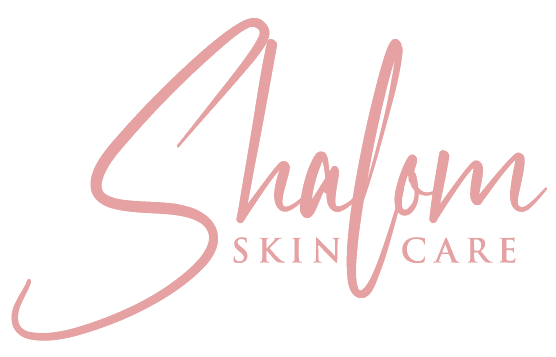
Sunscreen is a vital component of skincare, protecting our skin from harmful UV rays that can cause sunburn, premature aging, and even skin cancer. As awareness grows about the importance of sunscreen, so does the demand for natural alternatives that are effective yet gentle on the skin. In this blog, we’ll explore essential tips for choosing the right natural sunscreen and highlight some recommended products that prioritize both safety and effectiveness.
Why Choose Natural Sunscreen?
Natural sunscreens, also known as mineral or physical sunscreens, rely on active ingredients like zinc oxide or titanium dioxide to create a physical barrier on the skin that reflects and scatters UV rays. Unlike chemical sunscreens that absorb UV rays and convert them into heat, organic sunscreen lotions start protecting your skin immediately upon application, making them ideal sunscreen for sensitive skin or concerns about chemical exposure.
Essential Tips for Choosing Natural Sunscreen
Look for Broad-Spectrum Protection
Broad-spectrum protection in sunscreen is essential as it shields your skin from both UVA and UVB rays. UVB rays are primarily responsible for causing sunburns, while UVA rays penetrate deeper into the skin, contributing to premature aging and increasing the risk of skin cancer.
By choosing a sunscreen that offers broad-spectrum protection, you ensure comprehensive defense against the harmful effects of sun exposure, maintaining your skin’s health and vitality.
Check the SPF (Sun Protection Factor)
The Sun Protection Factor (SPF) indicates how well a sunscreen protects against UVB rays, the main cause of sunburn. SPF measures the sunscreen’s ability to extend the time it takes for your skin to burn compared to unprotected skin.
SPF 30 blocks approximately 97% of UVB rays, while SPF 50 blocks about 98%. Higher SPFs provide slightly more protection, but the increase beyond SPF 50 is marginal. It’s crucial to choose an SPF appropriate for your skin type and sun exposure level to effectively shield your skin from UV damage.
Read the Ingredient List
When selecting a sunscreen, prioritize those containing zinc oxide or titanium dioxide as active ingredients. These minerals are physical blockers that sit on top of the skin and reflect UV rays away from the skin’s surface.
They provide broad-spectrum protection without penetrating the skin, making them suitable sunscreen for sensitive skin types and less likely to cause irritation or allergic reactions compared to chemical sunscreens.
Avoid sunscreens with oxybenzone and avobenzone, which are chemical filters that absorb UV rays and can potentially disrupt hormones or irritate the skin.
Consider Your Skin Type
organic sunscreen lotions are generally gentle and well-tolerated by sensitive skin. However, individuals with specific allergies or sensitivities should scrutinize sunscreen ingredients carefully.
Look for formulations that are fragrance-free and avoid common allergens such as botanical extracts if you have known sensitivities. Opting for hypoallergenic and dermatologically tested sunscreens can minimize the risk of adverse reactions, ensuring your skin remains protected and comfortable throughout sun exposure.
Water Resistance
For activities involving water or heavy sweating, opt for a water-resistant sunscreen. Water-resistant sunscreens maintain their effectiveness for a specified time period while exposed to water or sweat, as indicated on the product label (usually 40 to 80 minutes).
Reapply sunscreen immediately after swimming, toweling off, or excessive sweating to maintain continuous protection. Choosing a water-resistant sunscreen ensures reliable coverage during outdoor activities, preserving your skin’s health and reducing the risk of sunburn and skin damage.
Check for Additional Benefits
Some natural sunscreens include antioxidants or moisturizing ingredients like vitamin E, green tea extract, or aloe vera, which can provide additional benefits for your skin.
Recommended Natural Sunscreen Products
Here are some highly recommended and best natural sunscreens that meet the above criteria and are beloved by skincare enthusiasts
Badger Sport Sunscreen Cream SPF 35
This water-resistant sunscreen uses zinc oxide as the active ingredient and is free from artificial fragrances, dyes, and other synthetic chemicals. It’s suitable for sensitive skin and offers broad-spectrum protection.
EltaMD UV Pure Broad-Spectrum SPF 47
Formulated with 10% transparent zinc oxide and antioxidants, this is the best natural sunscreen that’s gentle enough for all skin types, including those prone to acne or rosacea. It’s water-resistant for up to 80 minutes and provides excellent protection against UVA and UVB rays.
Alba Botanica Sensitive Mineral Sunscreen SPF 30
This fragrance-free sunscreen combines zinc oxide with botanical extracts like chamomile and aloe vera to soothe and protect sensitive skin. It’s reef-safe and biodegradable, making it a great choice for eco-conscious consumers.
Conclusion
Choosing the right natural sunscreen is crucial for protecting your skin from the sun’s harmful rays while minimizing exposure to potentially harmful chemicals. By opting for mineral-based sunscreens with broad-spectrum protection and skin-nourishing ingredients, you can safeguard your skin effectively and safely. Remember to reapply sunscreen every two hours, or more frequently if swimming or sweating, to maintain adequate protection throughout the day. Embrace natural sunscreen as part of your daily skincare routine and enjoy healthy, radiant skin for years to come.
FAQs
What does broad-spectrum protection mean in sunscreen?
Broad-spectrum protection in sunscreen indicates that it protects against both UVA and UVB rays. UVA rays contribute to premature aging and skin cancer, while UVB rays primarily cause sunburns. Choosing a broad-spectrum sunscreen ensures comprehensive protection against these harmful effects.
Is SPF 50 better than SPF 30?
SPF 30 blocks about 97% of UVB rays, while SPF 50 blocks about 98%. The difference in protection between SPF 30 and SPF 50 is minimal. SPF 30 is generally sufficient for daily use, but you may opt for SPF 50 for extended outdoor activities or if you have fair or sensitive skin.
Can natural sunscreens be water-resistant?
Yes, many natural sunscreens are formulated to be water-resistant. They maintain their effectiveness for a specified time (usually 40 to 80 minutes) while swimming or sweating. Remember to reapply these sunscreens after towel-drying or prolonged water exposure to maintain protection.
